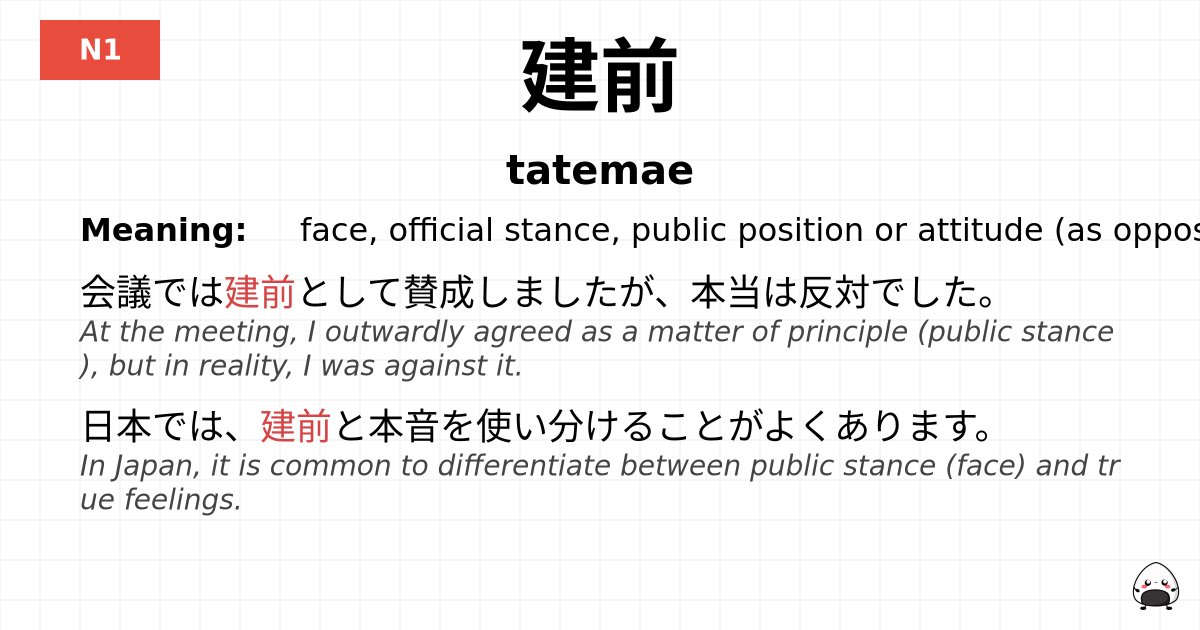会議では建前として賛成しましたが、本当は反対でした。
かいぎ で は たてまえ と して さんせい しました が、 ほんtō は はんたい でした。
Kaigi de wa tatemae to shite sansei shimashita ga, hontō wa hantai deshita.
At the meeting, I outwardly agreed as a matter of principle (public stance), but in reality, I was against it.
日本では、建前と本音を使い分けることがよくあります。
にほん で わ、 たてまえ と ほんね を つかいわける こと が よく あります。
Nihon de wa, tatemae to honne o tsukaiwakeru koto ga yoku arimasu.
In Japan, it is common to differentiate between public stance (face) and true feelings.
彼女はいつも建前ばかりで、本音をなかなか見せてくれない。
かのじょ は いつも たてまえ ばかり で、 ほんね を なかなか みせて くれない。
Kanojo wa itsumo tatemae bakari de, honne o nakanaka misete kurenai.
She always shows only her public face (official stance) and rarely reveals her true feelings.
